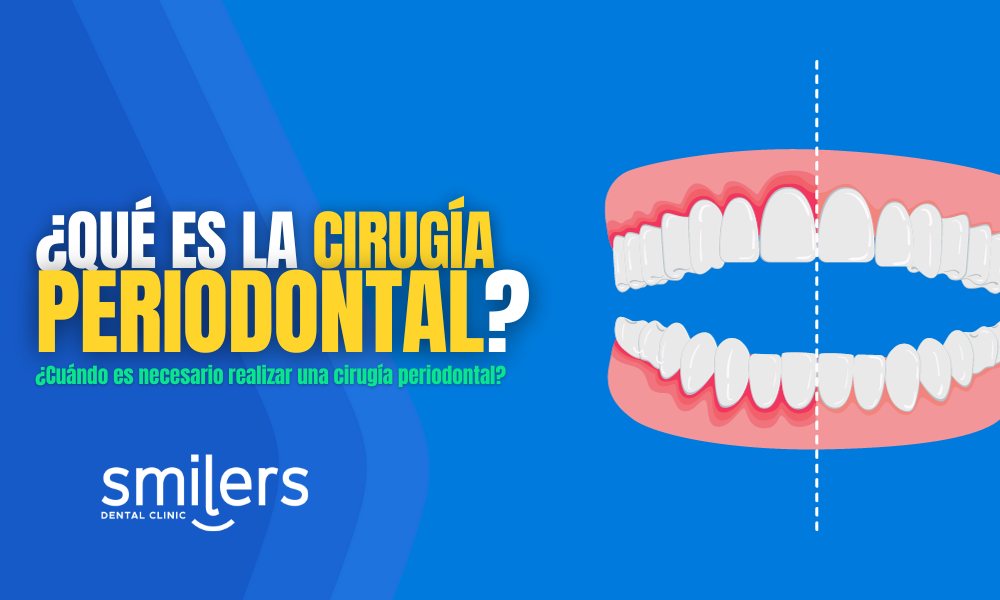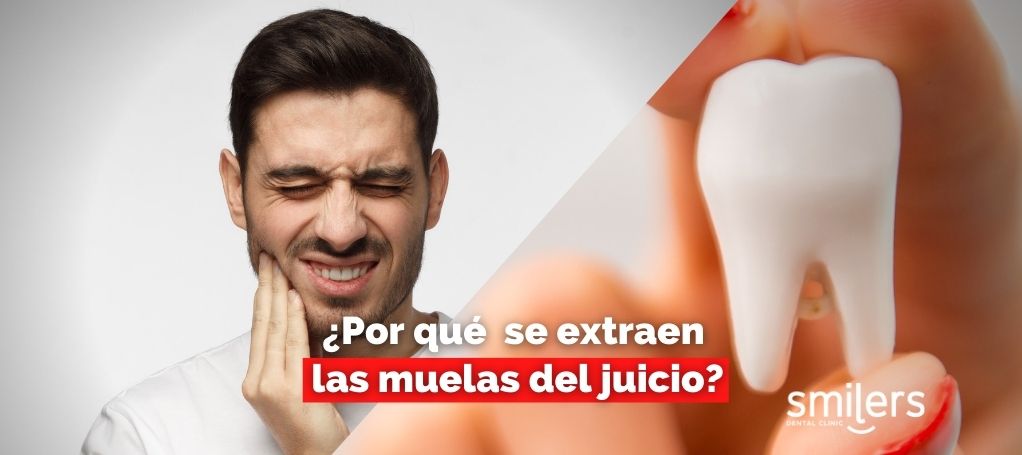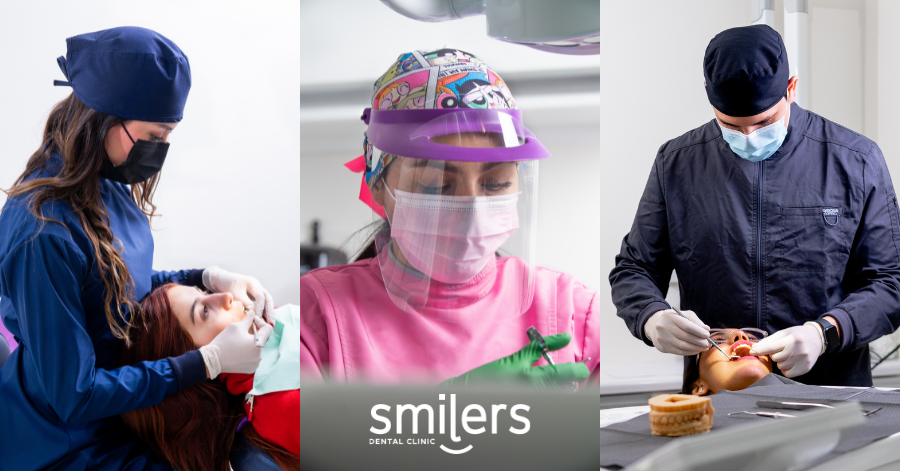Periodontal diseases are common and represent one of the main causes of tooth loss. When it comes to addressing this problem, periodontal surgery stands out as one of the most effective alternatives.

What is Periodontal Surgery?
It is a surgical procedure that will be very useful when it comes to eliminating bacteria located in the deepest areas of the periodontal pocket.
In addition to this primary objective, the surgery also aims to:
- Correct anatomical defects caused by periodontal disease.
- Apply regenerative techniques to recover damaged bone.
Who is it indicated for?
For those patients who present an advanced degree of periodontitis, since in less serious situations there are a series of simpler treatments that will allow us to solve the problem.
In short, we can determine that it is the last chance we have to save a tooth, since the main consequence is the loss of the tooth. Let us not forget that the main function of periodontal tissues is to support the teeth.
Comfort during surgery
Contrary to what many people think, this surgical procedure is not painful, since local anesthesia is applied to the patient so that he/she does not feel any discomfort during the intervention.
Además, existe la posibilidad de realizar este proceso mediante sedación asistida, es decir, aplicando fármacos relajantes al paciente para que se sienta más tranquilo y cómodo. La sedación asistida cada vez cuenta con un mayor protagonismo en los procesos dentales quirúrgicos y es que cuenta con interesantes ventajas y beneficios.
What is it for?
Periodontal surgery not only stops the progression of the disease, but also provides several benefits:
- Improved esthetics and oral functionality.
- Preservation of tooth structure by healing affected gingival tissues.
Considering that there are different types of surgery, each patient will have the possibility of undergoing the process that best suits his or her needs, although it will be the specialist who determines the best solution taking into account the patient’s situation.
Positive objectives
Periodontal diseases are considered to be the main cause of tooth loss. Considering this detail, it is not surprising that many patients come to dental clinics with the aim of solving any pathology of periodontal origin.
As for the objectives related to surgery, we can highlight that it is an ideal solution for those patients whose gingival tissues have been affected to such an extent that they have caused damage to the patient’s dental structure. In other words, it is a process that will help us to avoid the imminent loss of a dental piece.
It should be considered that, when periodontal pockets are deep, it is not possible to access them by root scaling, so the only solution will be to resort to surgery with the aim of healing the pockets and eliminating the infection.
However, once the intervention has been performed, it is essential that the patient follows a strict routine related to dental hygiene, since, otherwise, the problem will develop again in the near future.
When is it necessary to perform periodontal surgery?
Surgery is especially recommended when periodontal pockets are deep (greater than 6 mm) or when they are in areas that are difficult to access.
The procedure involves several steps:
- Separate and lift the mucosal flap surrounding the tooth bone.
- Remove accumulated tartar.
- Disinfect the treated area.
- Put stitches.
In certain cases, bone grafting may be necessary if there has been significant bone loss.
Periodontal surgery aftercare
Once surgery has been performed, it is crucial to follow some postoperative care guidelines to ensure a successful recovery:
- Rest and avoid physical exertion in the following days.
- Avoid brushing teeth, spitting or rinsing during the first 24 hours.
- Adhere to a soft diet for the first few days after surgery.
As we can see, the aftercare following periodontal surgery is practically the same as for other procedures such as implant placement or wisdom tooth extraction.
This post is purely informational and does not replace a consultation with the dentist in any way. Contact the smile agents team to schedule an appointment with one of the dentists at Smilers Dental Clinic.


